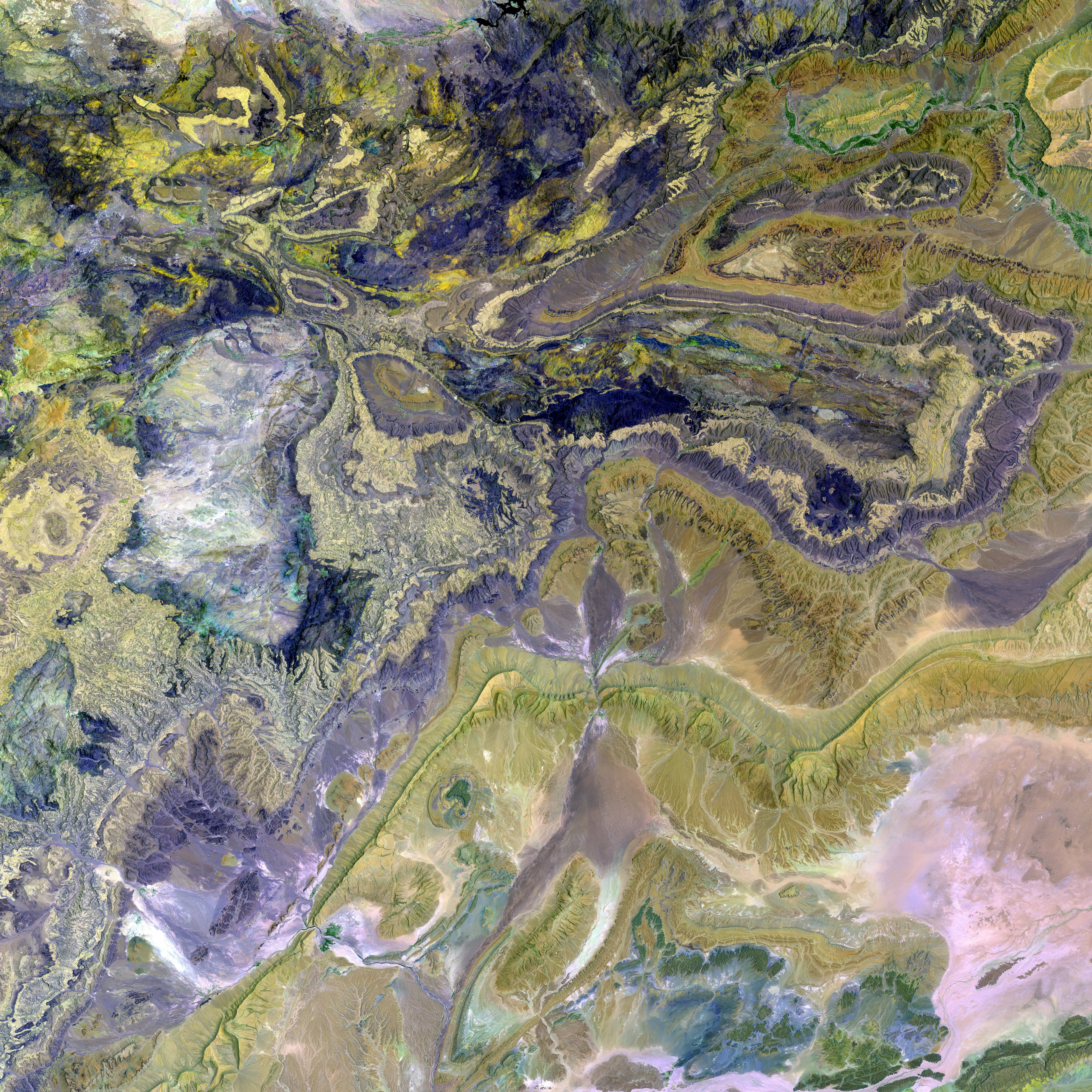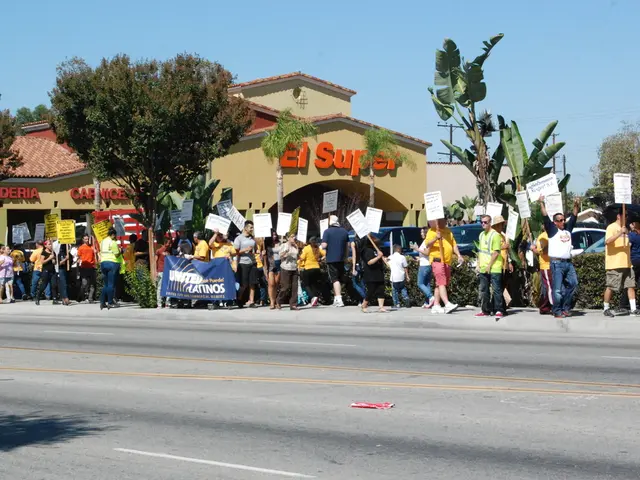Trade tribunal hinders Trump from implementing extensive tariffs utilizing emergency authority statute
WASHINGTON D.C. - The U.S. Court of International Trade has ruled against President Trump's tariffs on imports, citing that the President exceeded his authority under the International Emergency Economic Powers Act (IEEPA). The decision has put a question mark on Trump's trade policy, which has shown mixed results.
Trump, who has termed the country's trade deficits a national emergency, attempted to use this as justification for imposing tariffs on various goods. However, the court disagreed, stating that such powers are not granted to the President under the IEEPA without congressional approval.
The court ruling has raised doubts about Trump's signature trade policy, which has already strained relations with several global partners. The decision comes after several lawsuits, filed by a group of small businesses, states, and others, arguing that the emergency-powers law does not authorize the use of tariffs.
Trump's administration argues that courts approved then-President Richard Nixon's emergency use of tariffs in 1971, and that only Congress, and not the courts, can determine the political question of whether the President's rationale for declaring an emergency complies with the law.
The ruling has been temporary stayed by a federal appeals court, allowing the President to continue collecting tariffs while the legal challenge is considered. California, along with other states and private parties, has been involved in these lawsuits challenging Trump's tariffs.
California Governor Gavin Newsom welcomed the court's affirmation that Trump's tariffs are unlawful, stating that they have created chaos and hurt American families and businesses. The legal battle is ongoing, with the appeals court reviewing the challenge to Trump's tariffs.
The U.S. Constitution grants Congress exclusive powers to regulate trade, which Trump cannot unilaterally override. The decision could have far-reaching implications for future trade policies under the Trump administration.
- Reporting by Emma Whitehurst and David Boak, Associated Press. AP writers Zeke Miller and Paul Wiseman contributed to this report.
Enrichment Data:- In 1971, the courts approved then-President Richard Nixon's emergency use of tariffs.- California and other states, along with private parties, have been involved in lawsuits challenging Trump's tariffs. Governor Newsom has stated that the tariffs have created chaos and hurt American families and businesses.- The legal battle is ongoing, with the administrative reviewing the challenge to Trump's tariffs. The initial ruling was based on the principle that the U.S. Constitution grants Congress exclusive powers to regulate trade, which Trump cannot unilaterally override.
- The U.S. Court of International Trade's decision against Trump's tariffs questioned the validity of the President's trade policy.
- The President, labeling trade deficits a national emergency, sought to justify tariffs on various goods under the IEEPA.
- The court, however, disagreed, asserting that such authority is not granted to the President without Congress' approval under the IEEPA.
- The court ruling cast doubt on the President's trade policy, which has strained relationships with global partners.
- Several lawsuits, filed by businesses, states, and others, argued that the emergency-powers law does not authorize tariffs.
- Trump's administration argues that courts once approved Nixon's emergency tariffs in 1971, maintaining that only Congress can determine the legality of the President's emergency rationale.
- The federal appeals court temporarily stayed the ruling, allowing the President to continue collecting tariffs during the legal challenge.
- California, alongside other states and private parties, has been part of the ongoing lawsuits against Trump's tariffs.
- Governor Newsom believes that these tariffs are unlawful, asserting that they have caused chaos and harmed American families and businesses.
- The U.S. Constitution delegates exclusive powers to Congress to regulate trade, a power that Trump cannot bypass unilaterally.
- The decision's implications could extend to future trade policies under the Trump administration.
- The economic consequences of tariffs, both domestically and internationally, remain a topic of concern for businesses and policy-makers alike.
- In addition to trade, the ongoing political climate is a key area of focus for political analysts and academics.
- Los Angeles, a major business hub, has been particularly affected by the uncertain trade environment under Trump's tenure.
- The University of Southern California (USC) offers numerous programs and research opportunities in both business and political studies.
- The ongoing legal battle exemplifies the interplay between law and politics in the current administration.
- Trump's trade policy has raised concerns about the stability of the global economy, prompting discussions about alternative strategies.
- In today's digital age, online education platforms like Coursera, EdX, and Khan Academy provide opportunities for continuous learning, including in the fields of economics, politics, and trade.
- In addition to learning, personal growth and mindfulness are essential aspects of one's journey towards a more productive career.
- Embracing practices such as meditation, mindfulness, and goal-setting can enhance both mental and professional development.
- Career development is a multifaceted process that often involves acquiring new skills, networking, and continuous learning.
- Skills training programs, offered both online and offline, can help individuals sharpen their professional competencies.
- Elections, a cornerstone of the democratic process, play a critical role in determining policy and legislation.
- The upcoming elections will have significant implications for both domestic and foreign policy, with candidates presenting their visions for the future.
- Education and self-development are essential for informed decision-making in elections, making it crucial for voters to stay up-to-date on general news and issues.
- Accidents, fires, and crimes are unfortunately common occurrences, necessitating a strong infrastructure for justice and emergency response.
- Law enforcement agencies, lawyers, and the court system work tirelessly to address these incidents and bring those responsible to justice.
- Sports, such as football, basketball, baseball, soccer, hockey, and golf, distract the nation from the stresses of politics and provide entertainment for millions.
- Sports betting, a popular pastime, has emerged as a significant industry, with events like the Champions League, the NFL, the WNBA, the NCAAB, the Masters, the Grand Prix, horse racing, and the Premier League drawing devoted fans worldwide.








